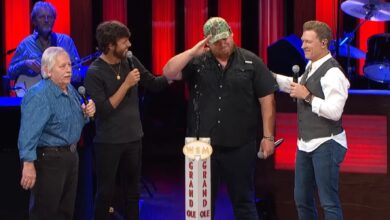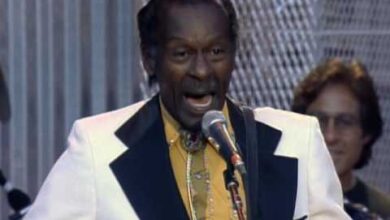Dusty Springfield’s ‘You Don’t Have to Say You Love Me’: The 1966 Classic That Defined a Generation and Continues to Inspire
In 1966, Dusty Springfield released “You Don’t Have to Say You Love Me,” a song that would become one of her most iconic hits. The track’s dramatic arrangement and Springfield’s powerful vocals resonated with audiences, propelling it to the top of the UK Singles Chart and securing a top-five position on the US Billboard Hot 100. Its success cemented Springfield’s status as a leading figure in the music industry during the 1960s.
The song’s origins trace back to the 1965 Sanremo Music Festival in Italy, where Springfield heard Pino Donaggio and Jody Miller perform “Io che non vivo (senza te).” Although she didn’t understand the Italian lyrics, Springfield was deeply moved by the melody and emotion of the song. Determined to create an English version, she obtained a recording and set out to adapt it for her audience.
To craft English lyrics that captured the essence of the original, Springfield enlisted the help of her friend Vicki Wickham, producer of the TV show “Ready Steady Go!,” and Simon Napier-Bell, then-manager of the Yardbirds. Despite neither having prior songwriting experience, they collaborated to pen the English lyrics, transforming the Italian ballad into “You Don’t Have to Say You Love Me.”
The recording session for the song was notably challenging. Springfield, known for her perfectionism, was dissatisfied with the acoustics in the recording booth. In her quest for the ideal sound, she moved to a stairwell to record her vocals, ultimately completing 47 takes before achieving a version she was satisfied with. This dedication is evident in the emotive delivery that characterizes the final track.
Upon its release, the song received widespread acclaim. In the UK, it quickly climbed to number one, becoming Springfield’s first chart-topping single in her home country. In the United States, it reached number four on the Billboard Hot 100, marking her highest-charting single in the US at that time. The song’s success was a testament to its universal appeal and Springfield’s compelling performance.
The song’s impact extended beyond its initial chart success. It became a defining moment in Springfield’s career, showcasing her ability to convey deep emotion through her music. The track’s lush orchestration and heartfelt lyrics resonated with listeners, solidifying its place as a classic in the pop music canon.
Over the years, “You Don’t Have to Say You Love Me” has been covered by numerous artists across various genres. Elvis Presley notably recorded a version in 1970, which also achieved commercial success. The song’s enduring popularity speaks to its timeless appeal and the emotional depth it conveys.
The song’s legacy is further evidenced by its inclusion in various films, television shows, and commercials, often used to underscore moments of emotional intensity. Its timeless message and evocative melody continue to resonate with new generations of listeners.
Reflecting on the song’s creation, Springfield acknowledged the challenges she faced during the recording process but also recognized the song’s significance in her career. She often referred to it as “good old schmaltz,” yet it became one of her most beloved tracks.
In the decades following its release, “You Don’t Have to Say You Love Me” has maintained its status as a classic. Its enduring appeal lies in its universal themes of love and longing, delivered through Springfield’s emotive performance. The song remains a testament to her artistry and the timeless power of music to convey deep emotion.
Today, the song is celebrated not only for its musical excellence but also for its cultural impact. It stands as a reminder of Springfield’s significant contributions to the music industry and her ability to connect with audiences on a profound level.
The song’s influence can also be seen in its numerous accolades and recognitions over the years. It has been featured in various “greatest songs” lists and continues to receive airplay on classic hits radio stations, underscoring its lasting impact.
Springfield’s rendition of “You Don’t Have to Say You Love Me” also played a role in shaping the sound of 1960s pop music. Its orchestral arrangement and emotive delivery set a standard for ballads of the era, influencing other artists and songwriters.
The song’s enduring popularity has also led to its performance by various artists in tribute to Springfield, further cementing its place in music history. These renditions pay homage to the original while introducing the song to new audiences.
In summary, “You Don’t Have to Say You Love Me” remains a significant work in Dusty Springfield’s discography and in the broader landscape of popular music. Its emotional depth, combined with Springfield’s powerful performance, ensures its place as a timeless classic that continues to touch the hearts of listeners around the world.



